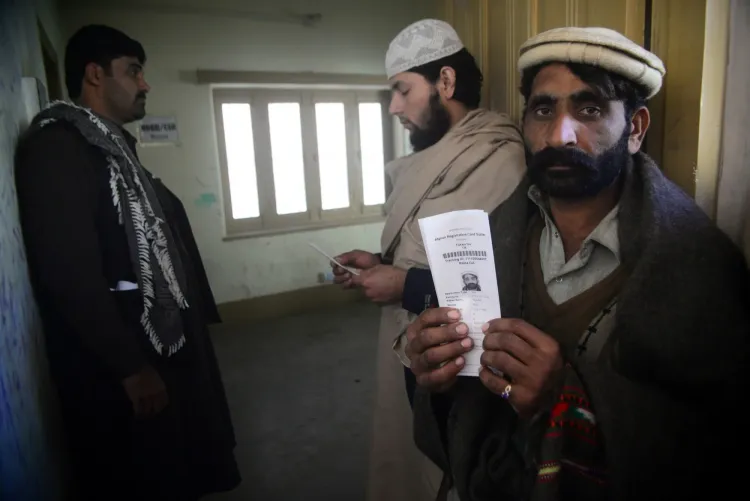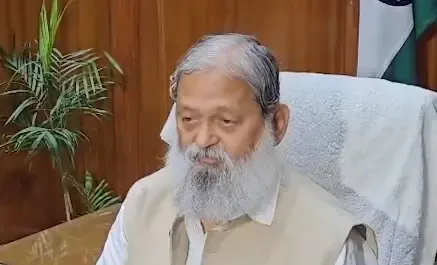Are Afghan Nationals Seeking Court Protection Against Forced Repatriation from Pakistan?

Synopsis
Key Takeaways
- Approximately 400 Afghan nationals are petitioning for refugee status in Pakistan.
- The principle of non-refoulement is central to their case.
- The Taliban's takeover has increased risks for artists and musicians in Afghanistan.
- Pakistan's policy towards Afghan refugees is under scrutiny.
- The situation highlights the need for international intervention.
Islamabad, Nov 20 (NationPress) Nearly 400 Afghan nationals, including numerous artists and their families, have turned to the Peshawar High Court, urging the judge to mandate the government to cease their forced deportation back to Afghanistan based on the principle of non-refoulement, as they would face persecution in their homeland, local media reported on Thursday.
The Afghan nationals submitted a collective petition to the court, requesting directions for the government to permit their continued stay in Pakistan as refugees. Among the petitioners are Zakiya Dunya Ghazal and many other Afghan artists and their families, as reported by Pakistan's prominent daily, Dawn.
The petitioners cited a previous ruling from the high court delivered on December 13, 2024, regarding other artists and transgender individuals, asking the court to render a decision consistent with that earlier judgement.
Respondents named in the petition include Pakistan's Federal Interior Ministry, Federal Secretary of Cabinet Division, directors of the National Database and Registration Authority (Nadra), immigration and passport authorities, FIA, as well as Khyber Pakhtunkhwa’s Chief Secretary and Home Secretary.
The petitioners argued that it has become perilous for artists and musicians to reside in Afghanistan following the Taliban's resurgence, as they have vocally opposed activities such as music concerts. They stated that they relocated with their families to Peshawar after fleeing Afghanistan.
They emphasized that Pakistan's policy of forced repatriation contradicts existing agreements with the United Nations High Commissioner for Refugees (UNHCR) and Pakistan's own international obligations.
On Tuesday, Afghanistan's Foreign Minister Maulvi Amir Khan Muttaqi refrained from directly criticizing Pakistan but condemned “some countries” for treating Afghan refugees “inhumanely” due to political motives.
In his speech at the Fifth Coordination Meeting between Afghanistan and United Nations (UN) agencies in Kabul, Muttaqi harshly criticized the neighboring nation for violating international standards and forcibly removing Afghan refugees from their homes.
Calling for immediate action from the international community, Muttaqi subtly criticized Pakistan for the forced deportations of Afghan refugees in recent months as diplomatic relations between the two countries deteriorate.
“The inhumane treatment of Afghan refugees in some nations persists due to political agendas. This harsh winter, they are being forcibly removed from their residences and subsequently denied entry at border crossings. Is this not a blatant infringement of international refugee principles? Is this not a severe injustice against women, children, and the elderly?” the Taliban minister questioned.
As per the UN, Iran and Pakistan are the two largest host nations for Afghan refugees. While Iran recently hosted around 3.5 million Afghan refugees, Pakistan had approximately 1.6 million refugees from Afghanistan.
Up to September 2025, an estimated 126,800 Afghan refugees and individuals in a refugee-like situation returned to Afghanistan from Pakistan over the past year.









